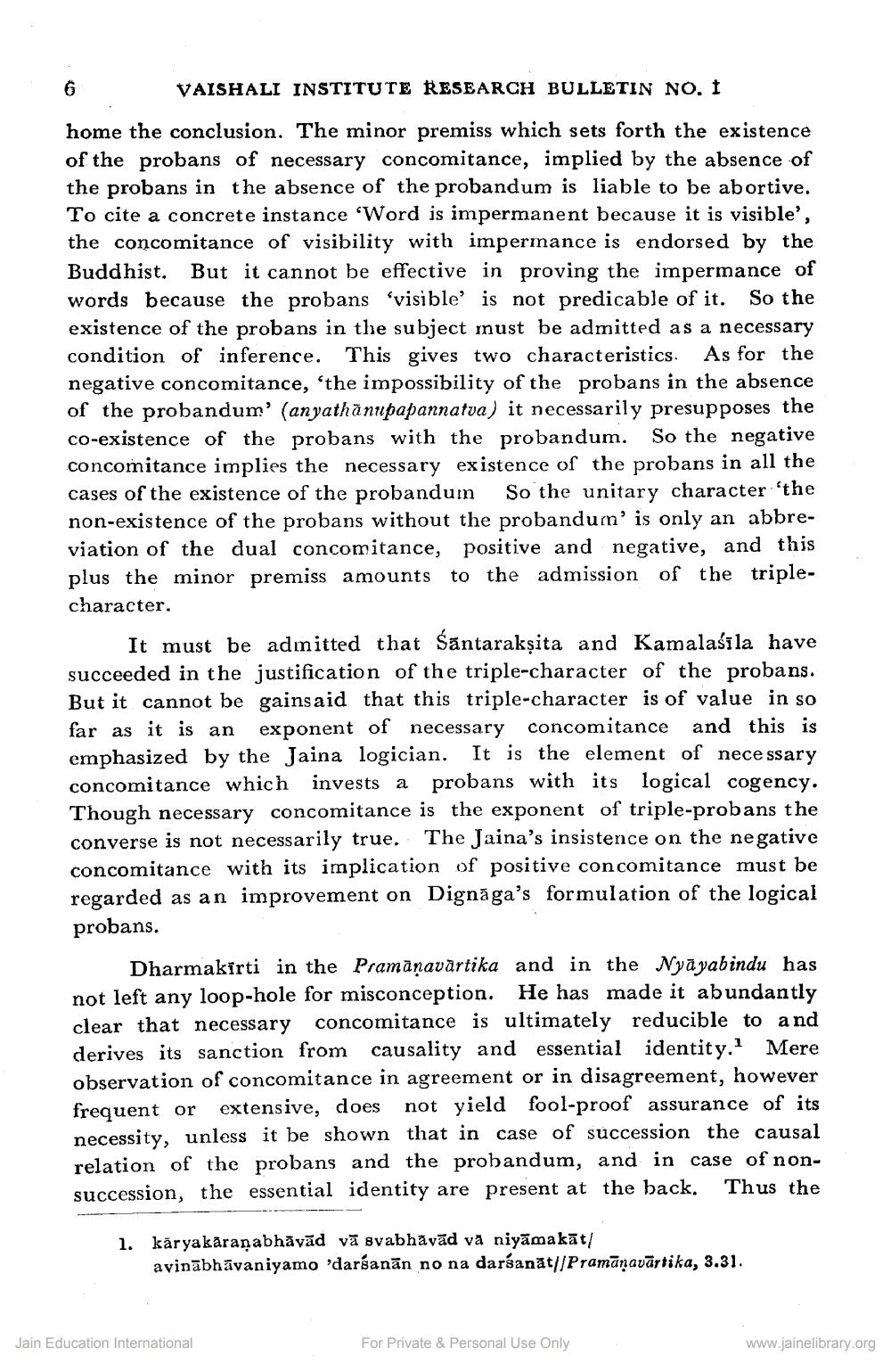________________
6
VAISHALI INSTITUTE RESEARCH BULLETIN NO. I
home the conclusion. The minor premiss which sets forth the existence of the probans of necessary concomitance, implied by the absence of the probans in the absence of the probandum is liable to be abortive. To cite a concrete instance 'Word is impermanent because it is visible', the concomitance of visibility with impermance is endorsed by the Buddhist. But it cannot be effective in proving the impermance of words because the probans 'visible' is not predicable of it. So the existence of the probans in the subject inust be admitted as a necessary condition of inference. This gives two characteristics. As for the negative concomitance, 'the impossibility of the probans in the absence of the probandum' (anyathānupapannatva) it necessarily presupposes the co-existence of the probans with the probandum. So the negative concomitance implies the necessary existence of the probans in all the cases of the existence of the probandum So the unitary character 'the non-existence of the probans without the probandum' is only an abbreviation of the dual concomitance, positive and negative, and this plus the minor premiss amounts to the admission of the triplecharacter.
It must be admitted that Santarakṣita and Kamalaśīla have succeeded in the justification of the triple-character of the probans. But it cannot be gainsaid that this triple-character is of value in so far as it is an exponent of necessary concomitance and this is emphasized by the Jaina logician. It is the element of necessary concomitance which invests a probans with its logical cogency. Though necessary concomitance is the exponent of triple-probans the converse is not necessarily true. The Jaina's insistence on the negative concomitance with its implication of positive concomitance must be regarded as an improvement on Dignāga's formulation of the logical probans.
Dharmakirti in the Pramāņavārtika and in the Nyāyabindu has not left any loop-hole for misconception. He has made it abundantly clear that necessary concomitance is ultimately reducible to and derives its sanction from causality and essential identity. Mere observation of concomitance in agreement or in disagreement, however frequent or extensive, does not yield fool-proof assurance of its necessity, unless it be shown that in case of succession the causal relation of the probans and the probandum, and in case of nonsuccession, the essential identity are present at the back. Thus the
1. käryakāraṇabhāvād vā syabhāvād vă niyāmakat/
avinābhāvaniyamo 'darśanān no na darśanāt|/Pramāņavārtika, 3.31.
Jain Education International
For Private & Personal Use Only
www.jainelibrary.org




